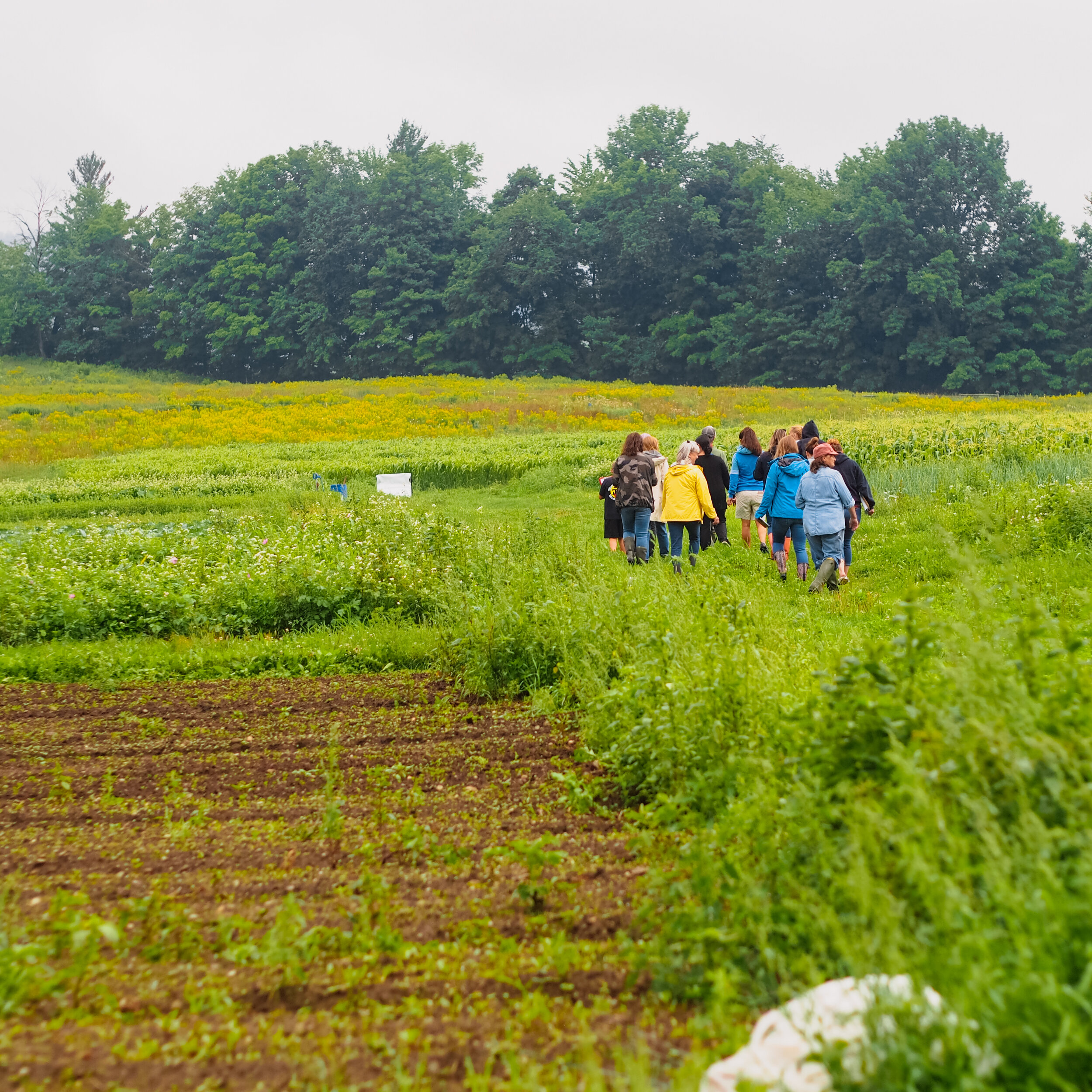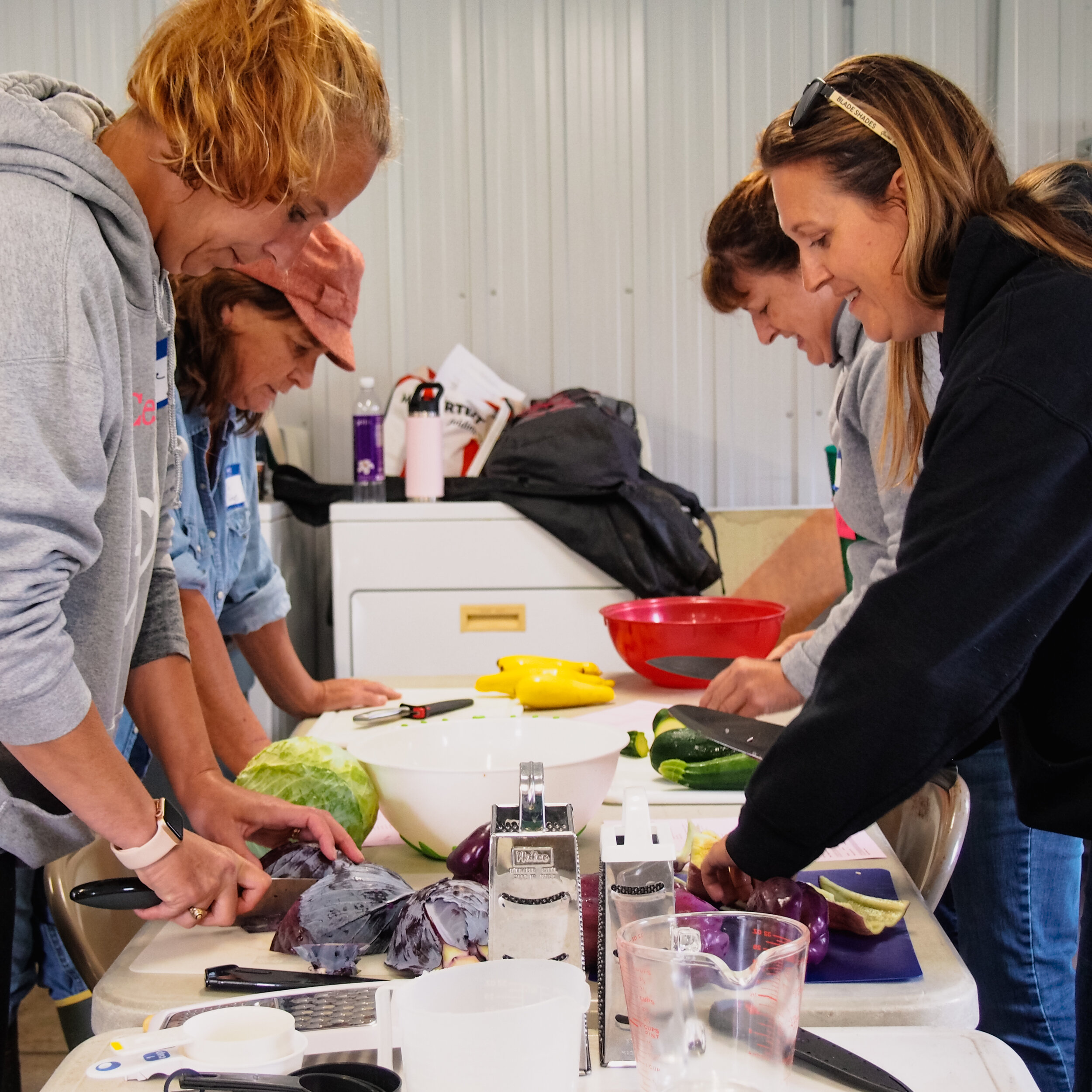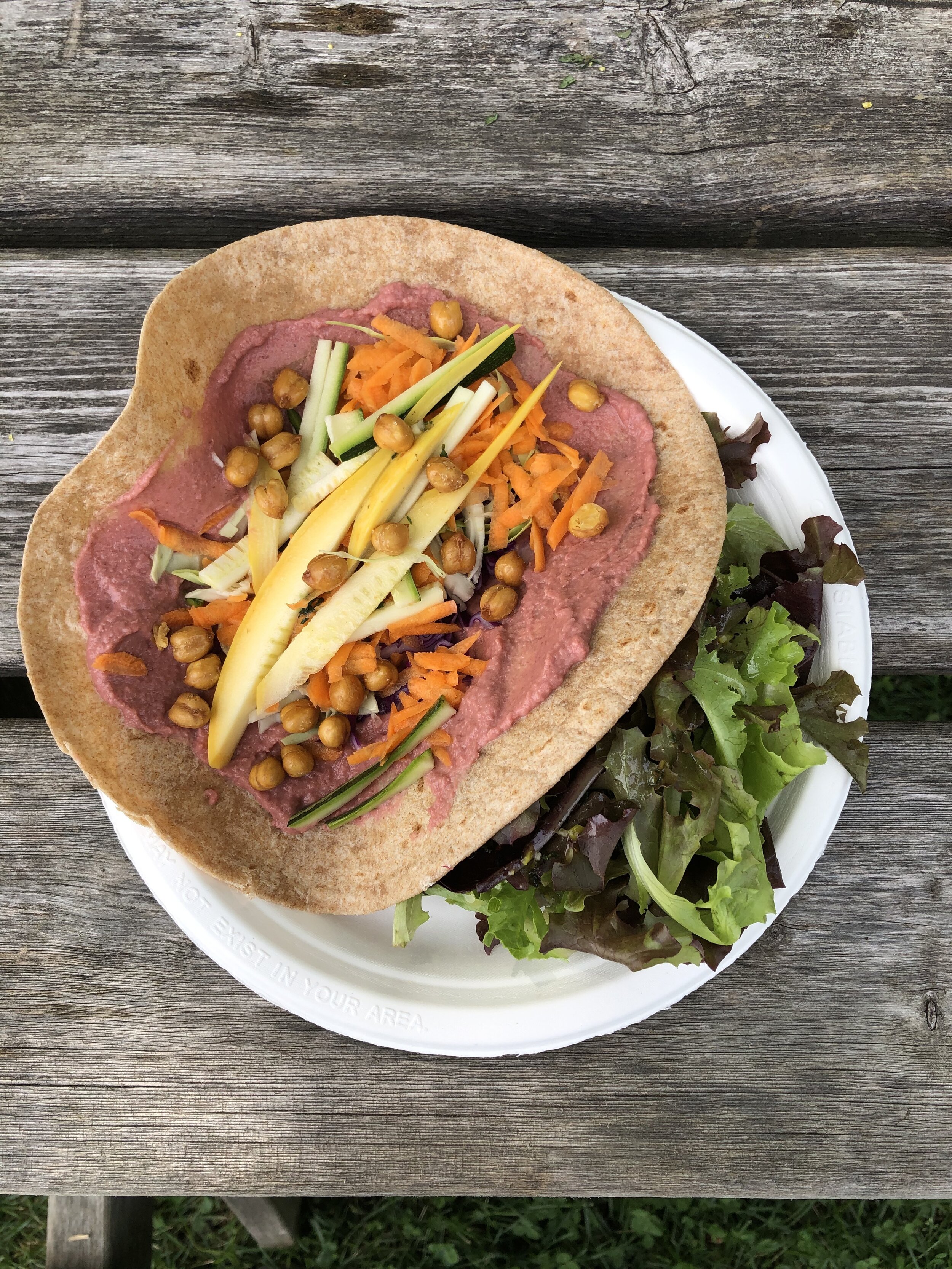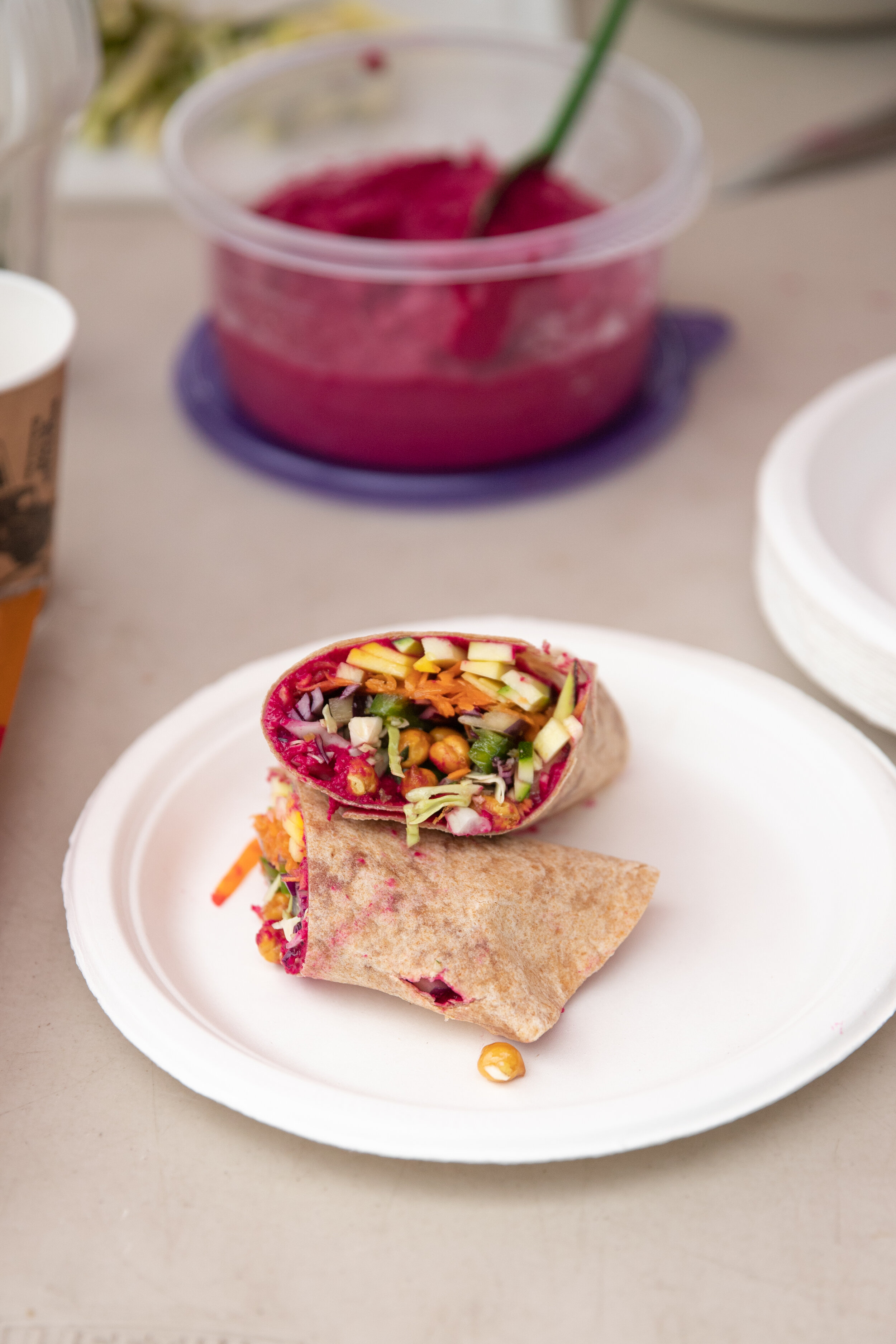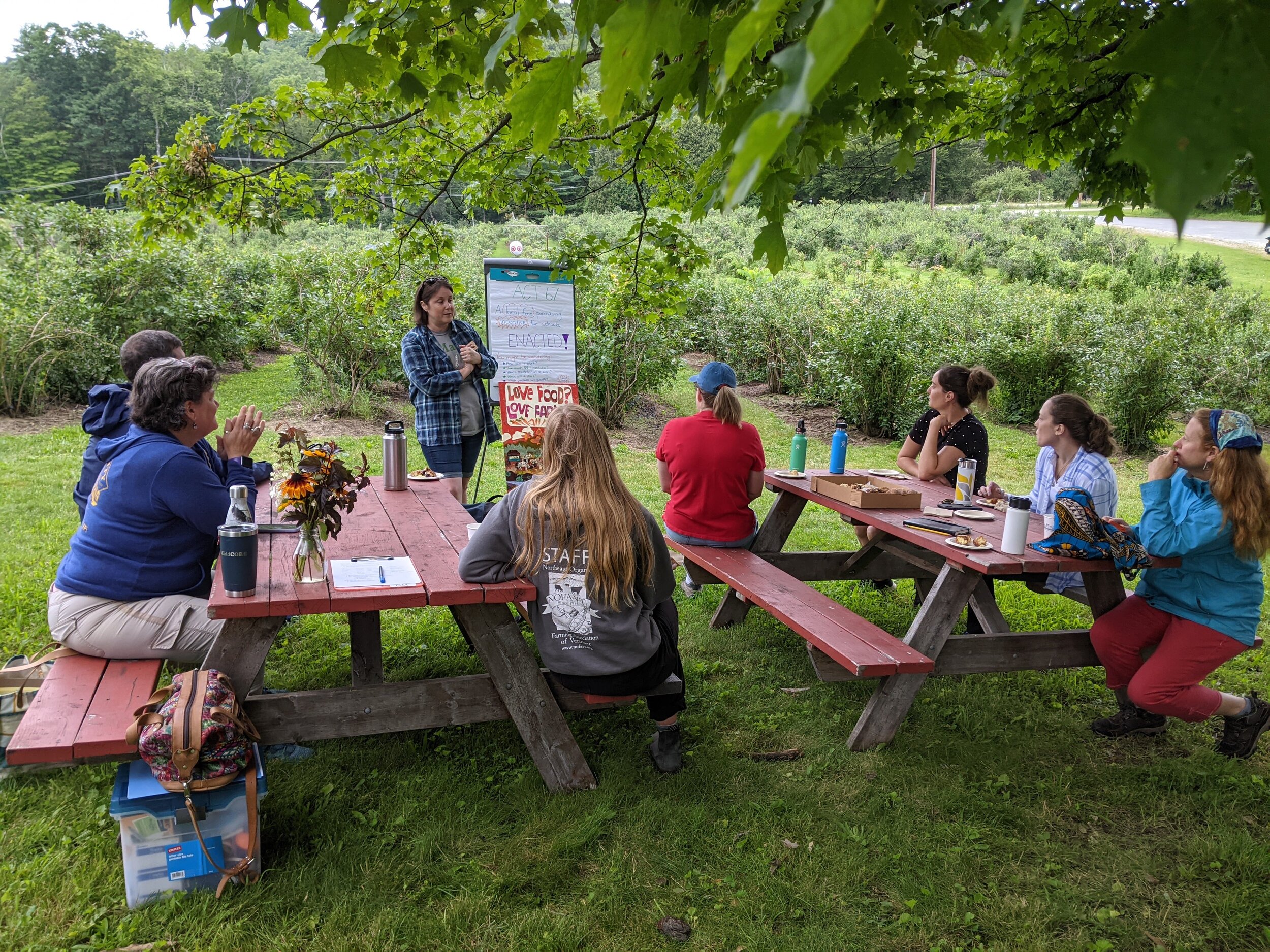Apple orchards, sweet potato fields, and diversified farms. School nutrition professionals gathered on farms across the state this past August; for many, it was the first time seeing their colleagues from other schools since the start of the pandemic.
Jointly hosted by Food Connects, VT FEED, and the School Nutrition Association of Vermont, these workshops were a time for school nutrition professionals to connect with farmers, think about local purchasing, and the opportunities of a new state bill that incentivizes buying Vermont products for their programs. In addition to touring the host farm, participants prepared a menu item that featured local products from the farm and met the school lunch meal pattern guidelines. There was also plenty of time for everyone to share stories from the past year and hear about what’s been working and what hasn’t been.
“The past 18 months have been especially hard on school nutrition professionals,” says Helen Rortvedt, Farm to School Program Director for NOFA-VT & VT FEED. “Working from home was never an option for them, and the need for healthy meals has only increased. It’s vitally important to have the time to come together, share best practices, and plan for restoring or expanding their local purchasing plans for the coming school year with colleagues.”
Made possible by a 2020 USDA Farm to School Implementation grant, participants got an inside look into the operations and hurdles local farmers contend with and discussed ways to get more of their products into school meals. A common theme throughout each of the workshops was the similarities between both professions in regards to the constant logistical details they had to consider—what’s the best packaging option for food, the constant battle for cold storage space, and how do you get your food to consumers (whether that be customers or students).
At the forefront of everyone’s minds was the local purchasing incentive recently passed by the Vermont legislature. Schools have incredibly low budgets for food (under $1.50 per meal), making it difficult for them to buy high-quality, locally produced foods. This new grant will help by reimbursing schools that use local ingredients in their meals. Given how new the program is, everyone has questions about what implementation will look like.
Food Connects is a natural partner for schools looking to increase local purchasing. The Farm to School Program works with school nutrition professionals, educators, and administrators to increase nutrition and farming education in classrooms, building interest in and demand for local foods by students. Once the demand is there, the Food Hub can deliver food from over 150 producers right to the school, providing schools an easy and affordable way to participate in the local food system.


